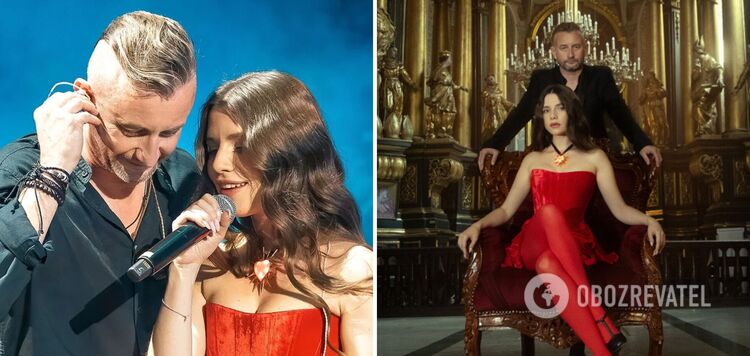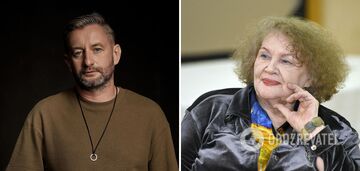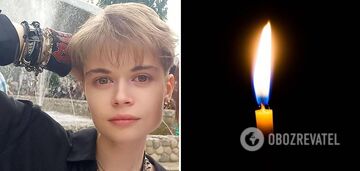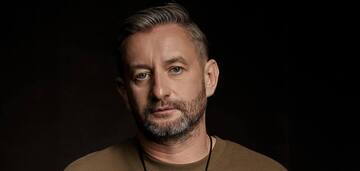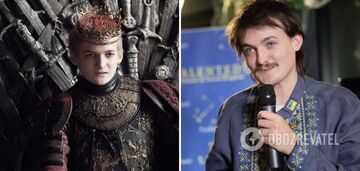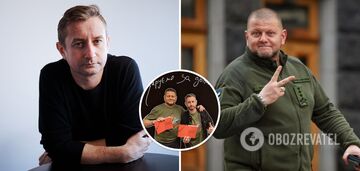
Sergei Zhadan
Sergiy Viktorovich Zhadan is a Ukrainian writer, translator and public figure. Leader of the musical groups "Zhadan and Dogs" and "Mannerheim Line".
Brief biography
Zhadan was born on August 23, 1974 in Starobelsk, Lugansk region. He was brought up in a Ukrainian-speaking family.
After leaving school, he moved to Kharkiv where he studied at the Faculty of Ukrainian-Germanic Philology at the Skovoroda Kharkiv National Pedagogical University. In 2000 he defended his dissertation "Philosophical and Aesthetic Attitudes of Mikhail Semenko".
Later he remained at the university, working as a lecturer in the department of Ukrainian and world literature.
In 2004, Zhadan, who had previously published poetry collections and novels, published his first novel entitled "Depesh Mod". Zhadan's subsequent novels received very positive reviews from audiences and critics alike.
GQ magazine twice nominated Zhadan for "Man of the Year" in the writer's category: first in 2008 for the novel "Anarchy in the UKR", and in 2010 for the theatrical play "Red Elvis".
At that time, critics were already calling Zhadan one of the best writers in the former Soviet Union, noting his ability to simultaneously write prose that is interesting to the common reader and an intellectual audience.
The 2010 novel Voroshilovgrad was called the manifesto of the generation, and the BBC Ukrainian service called it the book of the year.
In 2016-2019, Zhadan was a member of the Committee for the National Taras Shevchenko Prize of Ukraine. He is a member of the Ukrainian PEN.
In 2017, he was awarded the Vasyl Stus Award "For a special contribution to Ukrainian culture and persistence of civic position."
With his books, Zhadan is a frequent guest in the countries of Europe, where he has been nominated for prestigious literary awards more than once. His books have been translated into English, Polish, German, Croatian, Lithuanian, Serbian, Armenian, Belarusian and Russian.
Civic Position
Zhadan is also known in Ukraine for his civic position. During the Maranchev Revolution he was the commandant of the tent city in Kharkiv, and during the Euromaidan he protected Kharkiv from pro-Russian provocateurs - in particular, he did not allow the seizure of the building of the Kharkiv Regional State Administration.
He repeatedly criticized the political activities of Kharkiv officials Mikhail Dobkin and Gennadiy Kernes.
Since the beginning of the Russian-Ukrainian war he has been engaged in volunteer work for the AFU and founded a charitable foundation that promotes educational and cultural initiatives.
In addition to writing, Zhadan actively works as a translator. He translates texts from German, English, Belarusian and Russian.
In 2022 he was named Man of the Year by Polish publication Gazeta Wyborcza.
Nobel Prize
In March 2022 it became known that Zhadan had been nominated for the 2022 Nobel Prize in literature. The initiators were members of the Committee of Literary Sciences of the Polish Academy of Sciences.
Explaining their decision, the committee members noted that Zhadan is one of the greatest poets of Ukraine and a brilliant prose writer whose works have been translated into many languages. They also noted that Zhadan's work has had a special meaning for Ukrainians for many years, and he himself remained in Kharkiv after the full-scale invasion of the Russian Federation on February 24 and fights for Ukraine.
Whether Zhadan will receive an award from the Nobel Committee will be known by October 6.
Personal life
Zhadan was married to Svetlana Oleshko, director of the Kharkiv theater "Arabeski". With her the writer has a son.
In 2009 he married again. His new fiancee was Irina Kunitsina. With her Zhadan has a daughter.
Novels
Depesh Mode (Kharkov: Folio, 2004);
Anarchy in the UKR (Kharkiv: Folio, 2005);
Voroshilovgrad (Kharkiv: Folio, 2010);
Mesopotamia (Kharkiv: Family Leisure Club, 2014);
Internat (Chernivtsi: Meridian Czernowitz, 2017).
Selected awards and prizes
2001 - winner of the All-Ukrainian Rating "Book of the Year" in the category "Voice of the Soul" (Ballads of War and Restoration);
2006 - BBC Book of the Year award ("Capital");
2006 - winner of the All-Ukrainian Rating "Book of the Year" in the nomination "Red Writing" ("Capital");
2009 - literary prize named after Joseph Conrad-Kozhenevsky;
2010 - BBC Book of the Year Award ("Voroshilovgrad");
2012 - award "Golden Writer of Ukraine";
2012 - winner of the All-Ukrainian Rating "Book of the Year" in the nomination "Red Writing" ("Firearms and Knives");
2014 - Brücke Berlin Prize;
2014 - Jan Michalski Prize for Literature ("Voroshilovgrad");
2014 г. - BBC Book of the Year Award in the category "Best Book of the Decade" ("Voroshilovgrad");
2014 - winner of the All-Ukrainian Rating "Book of the Year" in the category "Red Writing" ("Dynamo Kharkiv");
2015 - award "Angelus" ("Mesopotamia");
2016 - Prize of the President of Ukraine "Ukrainian Book of the Year" ("Mesopotamia");
2017 - Vasyl Stus Award;
2017 - best book of the 24th Publishers' Forum in the category "Contemporary Ukrainian prose" ("Internat");
2018 - winner of the All-Ukrainian Rating "Book of the Year" in the category "Red Writing" ("Antenna");
2022 - winner of the All-Ukrainian Rating "Book of the Year" in the category "Red Writing" ("Aviation Psalm"; "Embroidered. King of Ukraine");
2022 - Gazeta Wyborcza Man of the Year;
2022 - Anna Arendt Prize for political thinking;
2022 - Jerzy Giedroyc Award.



